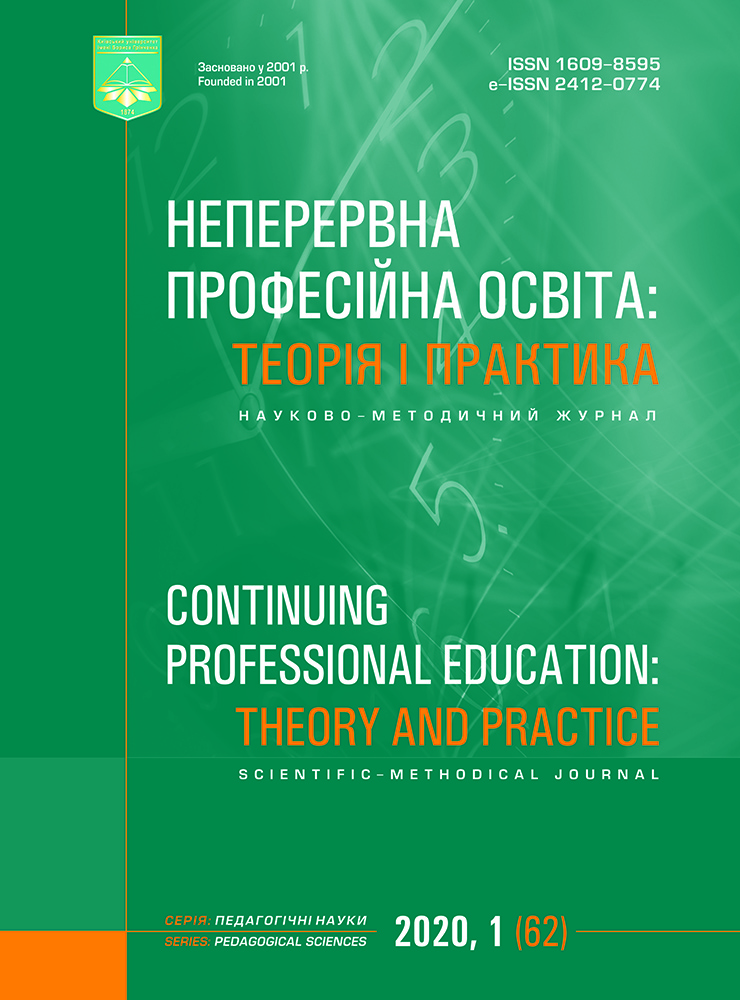STANDARDS OF QUALITY OF LIFE FOR PEOPLE WITH DISABILITIES IN THE EUROPEAN UNION’S POLICY
DOI:
https://doi.org/10.28925/1609-8595.2020.1.15Keywords:
disability, European Union, quality of life, standardsAbstract
The image of disability in EU societies is changing. On the one hand, statistical data (global and European) indicate an increase in the number of people with disabilities. This is especially true for women, the elderly and the poor. On the other hand, numerous legislative and implementation activities are undertaken to implement the social model in the approach to disability issues. The effectiveness of social and economic policies in the EU member states is expressed by the quality of life of people with disabilities. The article presents the WHO global position on the disability problem and a brief comparative analysis of key statistical data characterising people with disabilities in the EU member states.
The EU priorities regarding the standards of functioning of people with disabilities in the objective and subjective dimensions are discussed. The source of the EU’s strategy and activities are international documents: The Convention on the Rights of Persons with Disabilities of 2006 and the Council of Europe Disability Action Plan.
References
Daszykowska, J. (2010). Jakość życia w perspektywie pedagogicznej [Quality of life from a pedagogical perspective]. Impuls.
Gąciarz, B. (2014). Model społeczny niepełnosprawności jako podstawa zmian w polityce społecznej [The social model of disability as the basis for changes in social policy]. In B. Gąciarz B., S. Rydnicki (Eds.) Polscy niepełnosprawni.
Od kompleksowej diagnozy do nowego modelu polityki społecznej [Polish disabled people. From a comprehensive diagnosis to a new model of social policy] (pp. 17–43). Wydawnictwo Akademii Górniczo-Hutniczej.
Communication from The Commission to The European Parliament, The Council, The European Economic and Social Committee and The Committee of the Regions. European Disability Strategy 2010–2020: A renewed commitment to build Europe without barriers (2010). https://www.rpo.gov.pl/pl/content/europejska-strategia-w-sprawie-niepełnosprawnosci-0.
The Convention on the Rights of Persons with Disabilities (2006). http://www.unic.un.org.pl/dokumenty/ Konwencja_Praw_Osob_Niepelnosprawnych.pdf.
Kryńska, E. (Ed.) (2013). Analysis of the situation of disabled people in Poland and the European Union. Institute of Labour and Social Affairs.
Łajdych, N. (2011). The EU ratified the UN Convention on the Rights of Persons with Disabilities. http://uniaeuropejska. org/ue-ratyfikuje-konwencje-onz-o-prawach-osob-niepelnosprawnych/.
Recommendation Rec(2006)5 of the Committee of Ministers to Member States on the Council of Europe Action Plan to promote the rights and full participation of people with diabilities in society: improving the quality of life of people with diabilities in Europe 2006–2015. https://rm.coe.int/1680595206 WHO global disability action plan 2014–2021 «Better health for all people with disability» (2014). Niepełnosprawność – zagadnienia, problemy, rozwiązania, IV (13), 42–72.
Objective and subjective quality of life of adults with intellectual disabilities living in the Greater Poland Voivodeship.
Environmental conditions and the level of support for social policy implementers. Research report (2014). Regional Centre for Social Policy in Poznań. https://rops.poznan.pl/badania-spoleczne/raporty-z-badan/badania-2014.
Sompolska-Rzechuła, A. (2013). Quality of life as an economic category. Folia Pomeranae Universitatis Technologiae Stetinensis, Oeconomica, 301 (71), 127–140.
Wilmowska-Pietruszyńska, A., Bilski, D. (2014). International Classification of Functioning, Disability and Health. Orzecznictwo Lekarskie, 9 (1), 19–27.
Zawiślak, A. (2006). Theoretical dilemmas regarding taking into account the subjective aspects of the quality of life of people with intellectual disabilities. In Cz. Kosakowski, A. Krause, S. Przybyliński (Eds.), Dyskursy pedagogiki specjalnej. Pomiędzy teorią a praktyką [Discourses of special education. Between theory and practice], vol. V, pp. 77–82. Wydawnictwo Uniwersytetu Warmińsko-Mazurskiego w Olsztynie.
Downloads
Published
How to Cite
Issue
Section
License
Copyright (c) 2020 Malgozhata Kaminska

This work is licensed under a Creative Commons Attribution-NonCommercial 3.0 Unported License.



